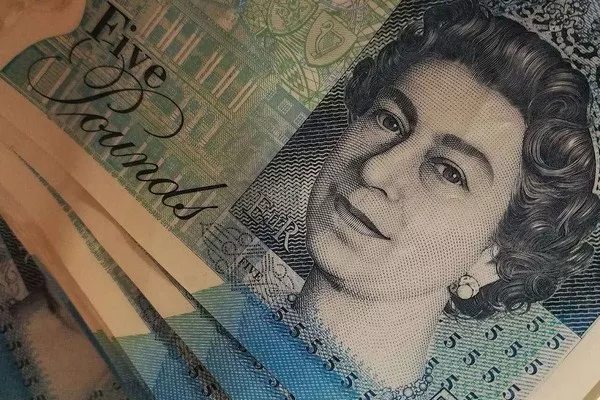The English pound, also known as the pound sterling, is the oldest currency in circulation today. It has been used for over 1200 years and was once the dominant currency in the world. Today, it is still one of the most widely traded currencies in the world, with a value that fluctuates based on a number of factors.
The History of the English Pound
The English pound has its roots in Anglo-Saxon times, when it was called the “pound scilling.” The word “sterling” actually comes from the Old Norman word “esterlin,” which means “little star.” The name later evolved to become “pound sterling” and eventually just “pound.
The English pound became the official currency of England in 1489, during the reign of King Henry VII. It was originally made up of silver pennies, but over time, gold coins were added to the mix. Today, the pound is made up of both coins and paper notes.
Factors that Affect the Value of the Pound
Like all currencies, the value of the pound sterling is subject to fluctuations based on a number of factors. Some of the key factors that affect the value of the pound include:
1. Interest Rates: When interest rates in the UK are high, the value of the pound tends to rise. This is because higher interest rates make the UK a more attractive place for investors to park their money.
2. Economic Performance: If the UK economy is performing well, the pound is likely to be strong. If there is a recession or other economic troubles, the pound can weaken.
3. Political Factors: Political instability or uncertainty can also weaken the pound. For example, if there is a major election coming up or if Brexit negotiations are going poorly, the pound may fall in value.
4. International Trade: The value of the pound is also affected by international trade. If the UK is exporting a lot of goods and services, the demand for pounds may increase, driving up its value.
The Value of the Pound Today
As of June 1st, 2023, the value of the pound sterling is around $1.42 USD. This is slightly lower than it was in early May, when it was valued at around $1.45 USD. The pound has been relatively stable over the past few months, but it has been subject to some fluctuations based on economic and political news.
Brexit has been a major factor affecting the value of the pound over the past few years. When the UK voted to leave the European Union in 2016, the pound fell in value significantly. It has since recovered somewhat, but it is still lower than it was before the Brexit vote.
The COVID-19 pandemic has also had an impact on the value of the pound. In the early days of the pandemic, the pound fell in value as investors fled to safer currencies like the US dollar. As the situation stabilized, however, the pound recovered some of its losses.
Looking to the Future
It’s always difficult to predict exactly what will happen with currency values in the future. However, there are a few key things to keep an eye on when it comes to the pound sterling:
1. Brexit Negotiations: The UK is still negotiating its exit from the European Union, and these negotiations could have a major impact on the value of the pound.
2. Interest Rates: If interest rates in the UK rise, it could drive up the value of the pound.
3. Economic Performance: If the UK economy continues to perform well, it could help support the value of the pound.
4. International Trade: The ongoing trade negotiations between the UK and other countries, including the US and China, could also impact the value of the pound.
Conclusion
The English pound is one of the oldest and most widely traded currencies in the world. Its value fluctuates based on a number of factors, including interest rates, economic performance, political factors, and international trade. While it’s impossible to predict exactly what will happen with the pound’s value in the future, keeping an eye on these factors can help provide insight into potential fluctuations.


